The Group of Seven (G7), established in 1976, is an alliance of seven industrialized countries: the UK, the US, Germany, Japan, France, Canada, and Italy. Of these, six countries (the UK, the US, Germany, France, Canada, and Italy) are members of the North Atlantic Treaty Organization (NATO). Together with the Group of 20 leading developed and emerging economies, the G7 plays an important role in shaping and strengthening global governance and structure. The G7 is also a gathering of voices, reflecting the similar views and interests of developed countries in addressing common issues of international security and promoting discussions on addressing global challenges.
At the Foreign Ministers' Conference of the Group of Seven (G7) leading industrialized countries, which just concluded on November 8 in Tokyo, a Joint Statement was adopted addressing many hot topics in the world, demonstrating the G7's "unified stance" on issues such as the Russia-Ukraine conflict, the conflict in the Gaza Strip, as well as developments in the Indo-Pacific region.
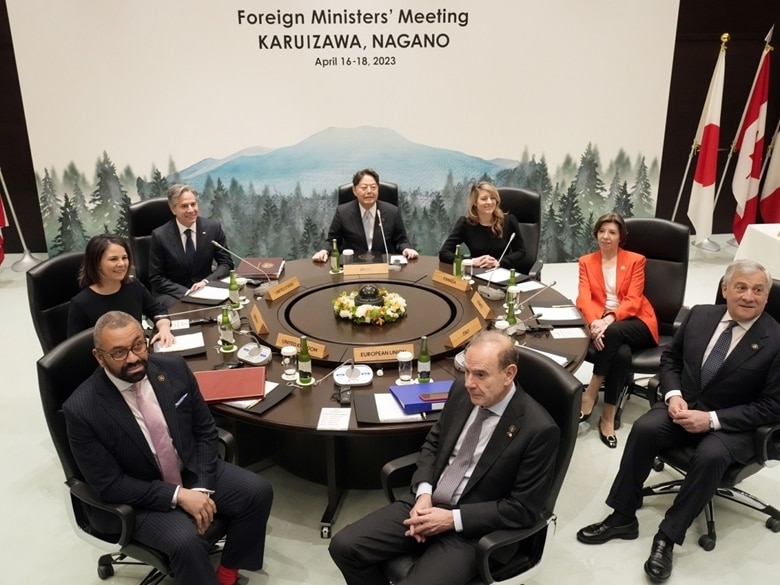
G7 foreign ministers meet at a hotel in the resort town of Karuizawa, Nagano Prefecture, central Japan. Photo: AP.
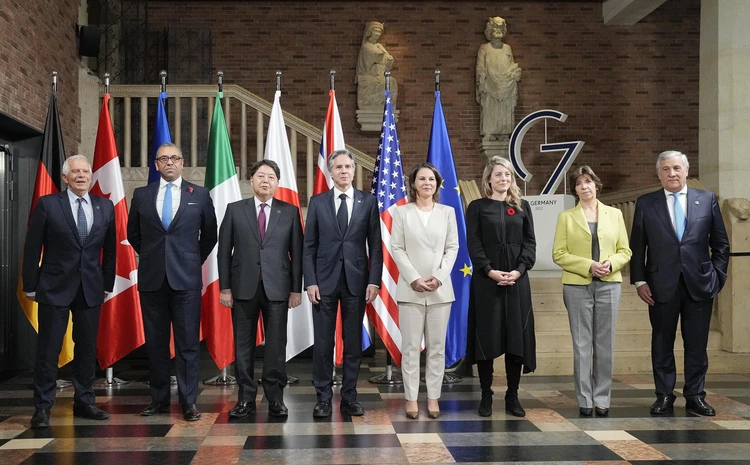
Delegates pose for a group photo at the G7 Foreign Ministers' Meeting in Tokyo, Japan on November 8, 2023 - Photo: Kyodo/VNA
The G7 agreed on the importance of establishing stable and constructive relations with China, reaffirming the important role of the 1982 United Nations Convention on the Law of the Sea (UNCLOS) in establishing the legal framework governing all activities in the seas and oceans. Regarding the Russia-Ukraine conflict, the G7 affirmed its unified stance in imposing sanctions on Russia, while working with international partners to promote efforts to restore peace in Ukraine. The G7 reaffirmed its determination to strengthen cooperation with Central Asian countries to address regional challenges; promote trade and energy links, connectivity and sustainable transport. The G7 foreign ministers committed to further building international solidarity beyond the G7 to address broader global challenges, such as climate change, nuclear disarmament and gender equality, including the agenda on women, peace and security.
The results of the recent G7 Foreign Ministers’ Meeting in Japan have achieved certain success in narrowing the gap between member countries on solutions to global hot issues. After the commitments, the international community hopes that the G7 will take concrete actions to implement these commitments, especially the countries directly involved in the conflicts. The cooperation of the parties concerned plays an indispensable role in the G7’s efforts to find a quick peaceful solution to conflicts in particular and measures to solve global challenges in general.
The G7 Summit is held annually at the Heads of State or Government level of the member countries, and is hosted by the chairing country (in rotation). The Summit focuses on exchanging, promoting, and solving global issues from economics, politics, and society, including finance, growth, technology, green growth, digital transformation, epidemics, gender equality, global hotspots, and conflicts, etc./.
Vu Tung































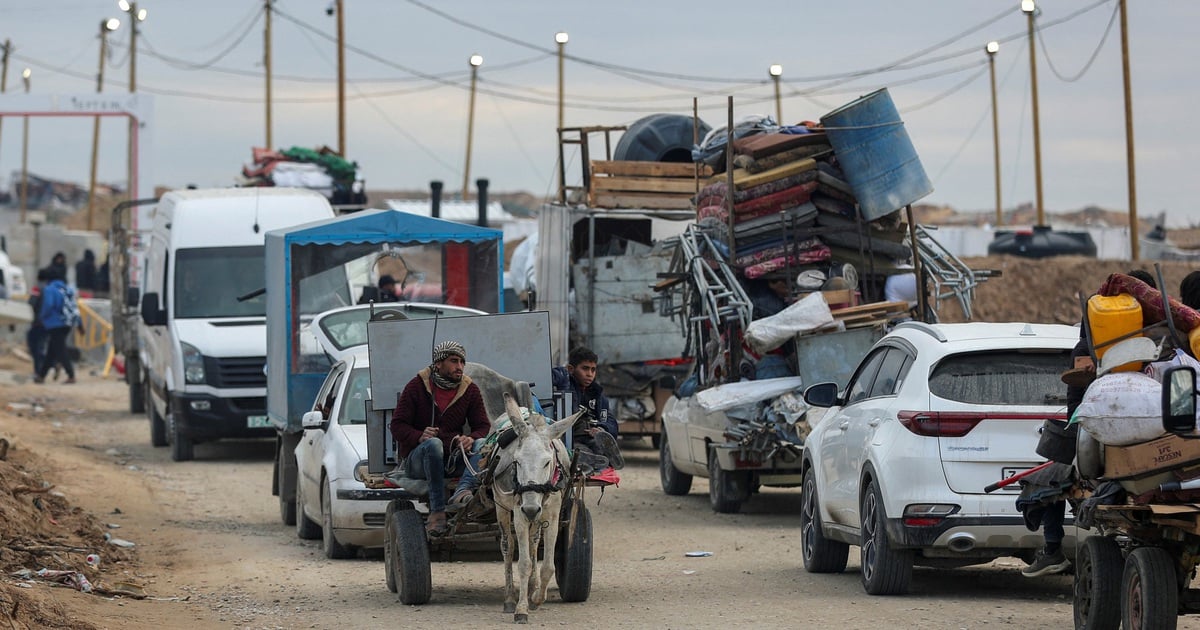

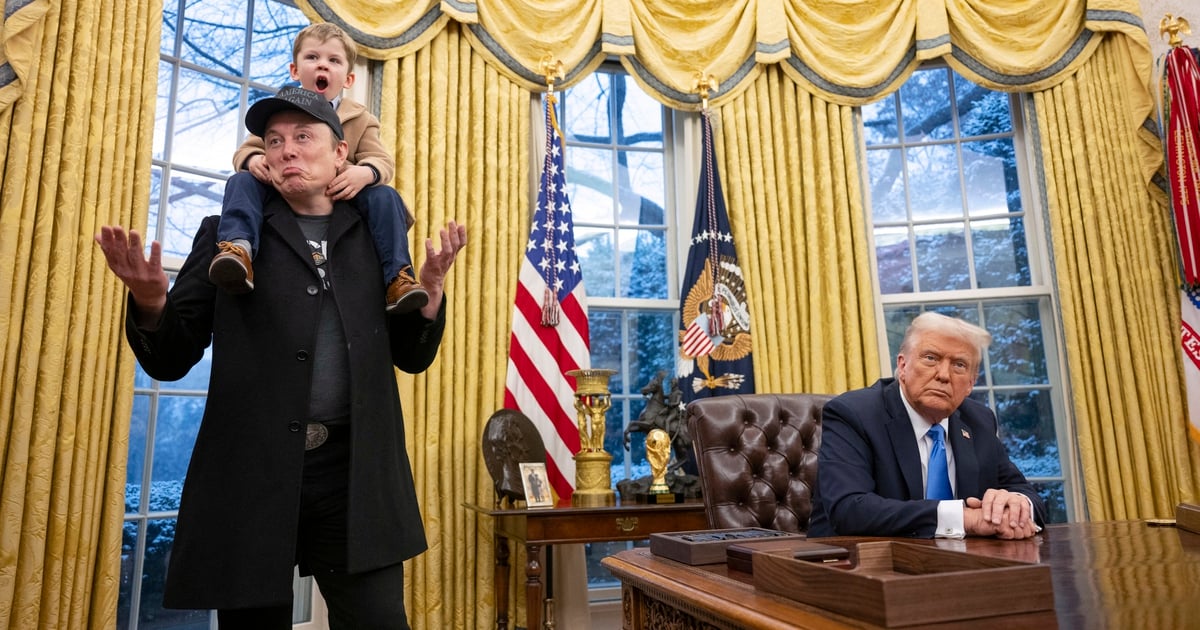



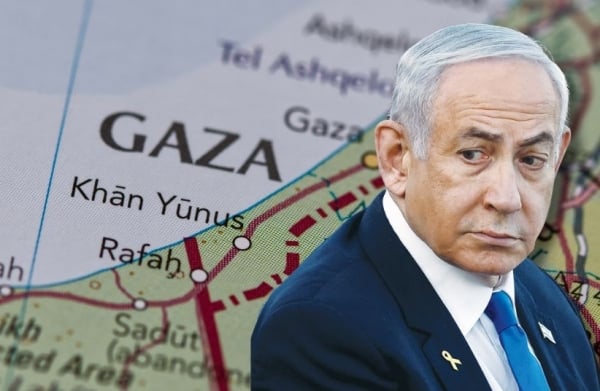
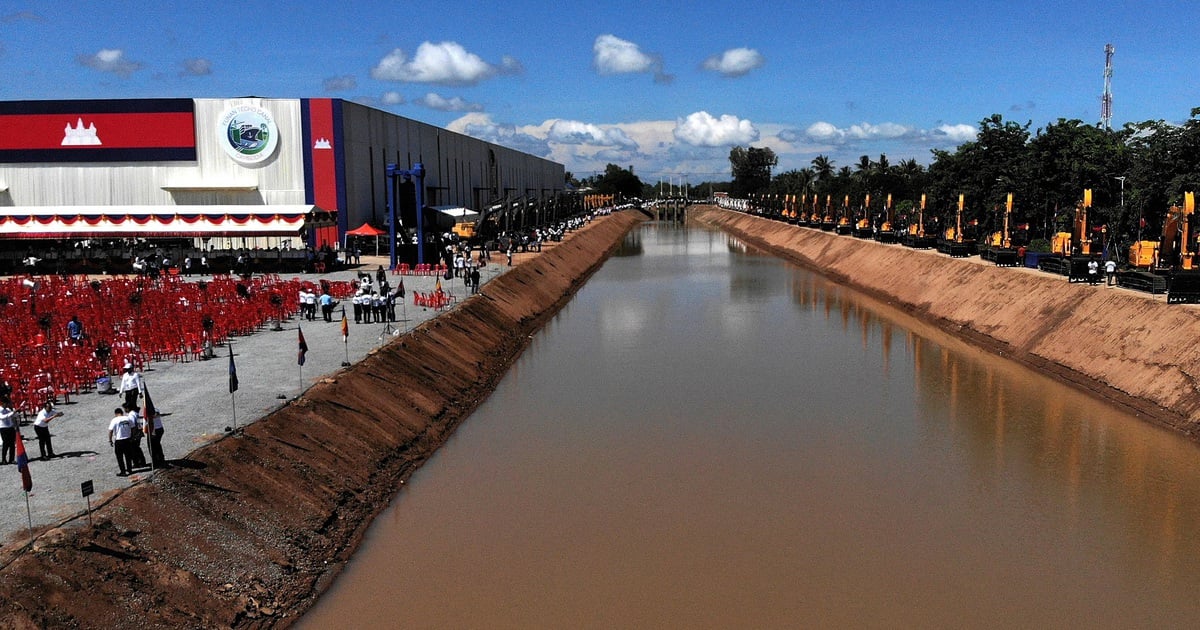

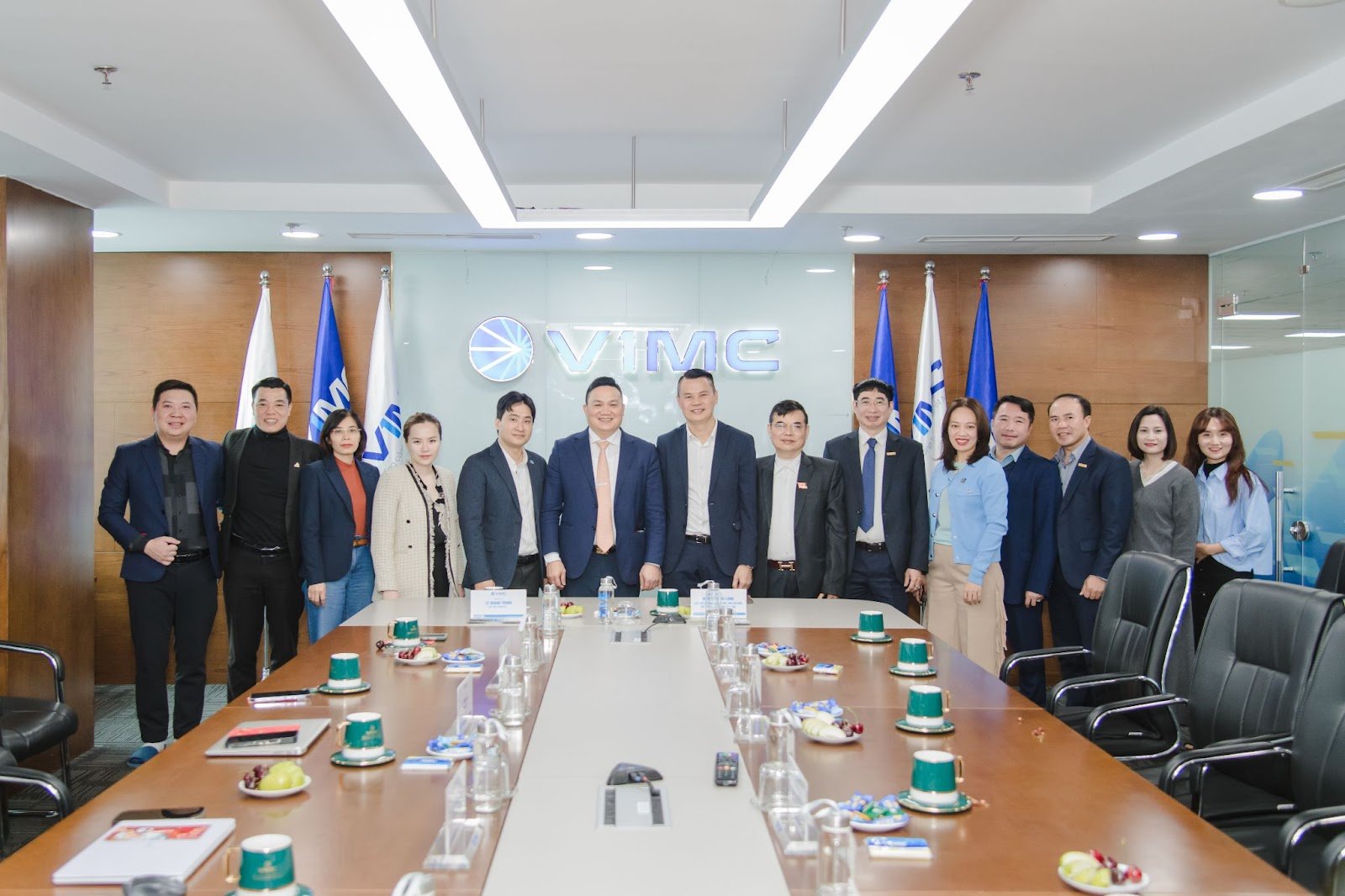


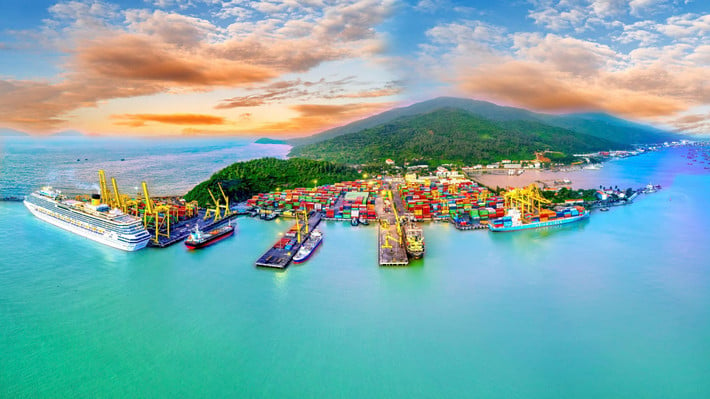
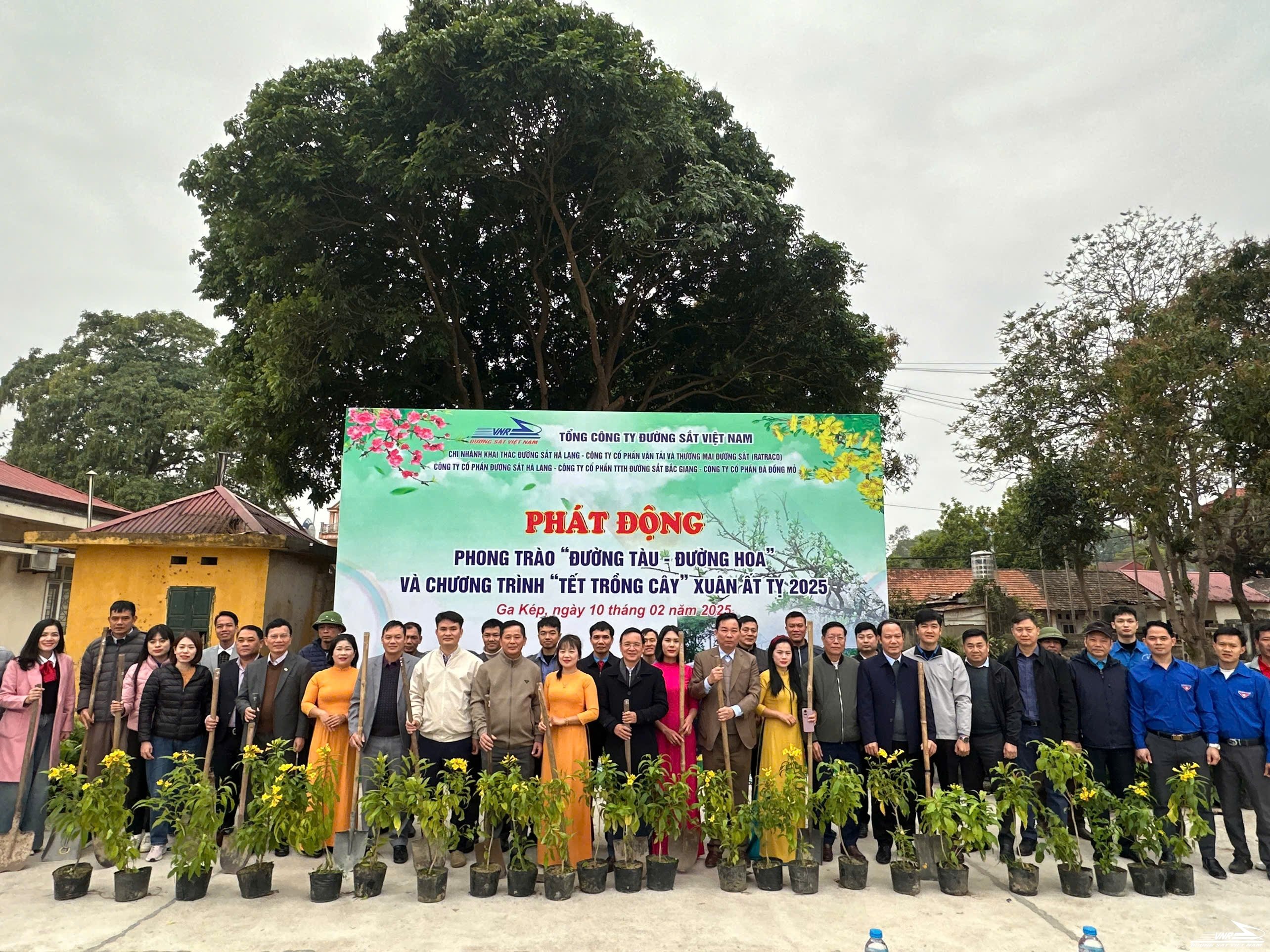














Comment (0)